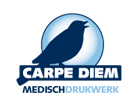Transformative Agreements Open Access
The De Sage, IMechE and RSM documents in fully open magazines are entitled to a discount on standard rates. UCL`s normal eligibility criteria for open access funding apply. You need to select the open access when sending. Select EcS Plus in Step 6 – Open Access Waiver, Fees and Credits. Your item is recognized as open as open access. It`s the same!… Public money goes to private publishers!… I find it ridiculous to continue to feed this shark system!… That`s why I admire Grigori Perelman!…
He paid nothing for your fabulous contribution!… He puts it on the Internet for free so that everyone can access it, including a million dollars, twice, but they refuse!… This may be the indication that this is your job and not the place where you publish, the most important!… All the scientific crooks, the forgers, the liars, will be discovered one day!…. God bless you!… Science should be open so that we can all lead healthier lives on a sustainable planet. At Frontiers, all of our publications are available free of charge to everyone around the world from the day of publication. This open access (OA) model of scientific publication – which has proven to increase the scope and impact of scientific results, as shown by consistently higher usage rates (. B for example, quotes and downloads) – has been adopted and supported by a growing number of public institutions, such as donors, universities and libraries, which have introduced rules to support the transition from a scientific communication system that still relies heavily on paywalls. , to a fully open plan (z.B. plan S). UCL`s Portland Press agreement allows all UCL correspondents to publish Gold Open Access in all five Portland Press subscriptions and two fully open journals: Biochemical Journal, Biochemical Transactions Society, Bioscience Reports, Clinical Science, Biochemistry Trials, Emerging Topics in Life Sciences and Neuronal Signalling.
UCL strongly encourages all authors to take advantage of this agreement. Plan S has put the concept of transformative agreements at the forefront of contemporary discussions, but these agreements – and the requirements they are developed – are well ahead of Plan S. Individual libraries, library consortia and national organizations often develop specific requirements for the transformative agreements they seek. For example, open access agreement requirements: Accelerating the Transition to Immediate and Worldwide Open Access offer guides for Jisc collections and uk higher education institutions. Negotiating Journal Agreements at UC: A Call to Action does the same for the University of California system. ESAC: The Efficiency and Standards for Article Charges provides a list of international negotiating principles. If no waiver is provided and the researcher (or his funder or institution) is unable to finance the publication fee, the publisher must authorize the author to retain his copyright, provide a copy of the manuscript accepted by the author or the version of the data set via an embargo-free repository and with an open license (CC-BY) in accordance with the requirements of Plan S.

